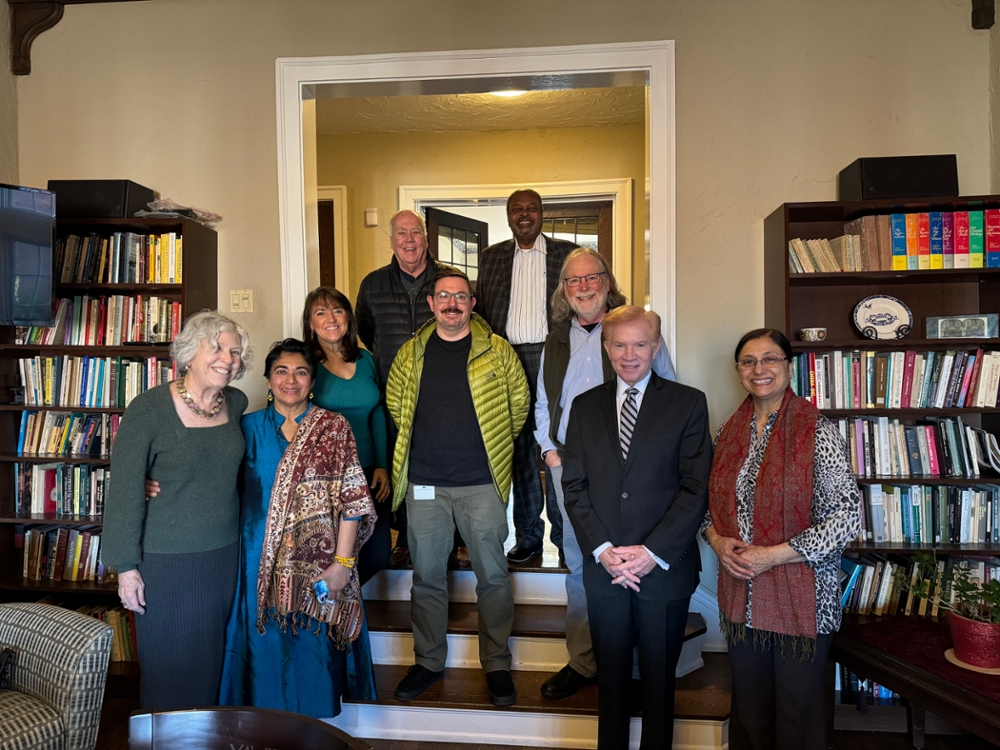Mission

Deepening Interfaith Understanding and Promoting Systemic Change
As endowed center at a Jesuit/Catholic university, we are committed to the fundamental vision of Saint Ignatius of Loyola, that all that we do should be done for the greater glory of God.
We stand at a moment in history where divisions between people and groups are especially pronounced. In response to the tensions that arise out of these divisions, the Brueggeman Center is committed to fostering dialogue. As a crucial form of interpersonal relating, dialogue is not simply conversation, but an encounter between people built upon a both a willingness to listen deeply and an openness to being transformed.
Today, the mission of the Center is concentrated in the promotion of the Four "Universal Apostolic Preferences" of the Jesuits (Society of Jesus), who established the University:
- Showing the Way to God—through the Spiritual Exercises and interfaith exploration.
- Walking with the Excluded—by accompanying the poor and the marginalized in a mission of reconciliation and justice.
- Journeying with Youth—in the creation of a hope-filled future.
- Caring for our Common Home—by working for the protection of the Earth and the renewal of God’s creation.
The Center continues, as it has in the past, to seek partners—regionally, nationally, and globally—to collaborate in the essential work of deepening interfaith understanding and promoting systemic change on issues of social and environmental justice.